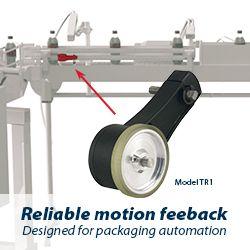The $7 Million Shell Ocean Discovery XPRIZE is a global competition challenging teams to advance deep-sea technologies for autonomous, fast and high-resolution ocean exploration.
Shell Ocean Discovery XPRIZE Competition
Various Interviews | Shell Ocean Discovery XPRIZE
The $7 Million Shell Ocean Discovery XPRIZE is a global competition challenging teams to advance deep-sea technologies for autonomous, fast and high-resolution ocean exploration.
The success of this prize will allow us to fully explore and map the ocean floor, and uncover our planet’s greatest wonder and resource for the benefit of humanity. The National Oceanographic and Atmospheric Administration’s (NOAA) $1 million bonus prize will incentivize teams to develop technologies to detect the source of chemical and biological signals underwater.
Here is an interview with Dr. Jyotika Virmani who is a senior director for energy and environment at the XPRIZE Foundation and leads the Shell Ocean Discovery XPRIZE.
What is the ultimate challenge in the Shell Ocean Discovery XPRIZE?
The ultimate challenge is that we do not yet have a map of our own planet. We have better maps of the surface of Moon and Mars than we do of Earth. The technologies that come out of this XPRIZE will give us the ability to finally discover this planet by allowing us to fully map our ocean floor and find out what is down there, under the sea.
How important is robotics in this overall challenge?
Underwater robotics is a core element of this XPRIZE. We are challenging teams to develop deep-sea autonomous underwater robots that will have to perform a series of tasks. These tasks include being able to quickly map the sea-floor at a high resolution, take high-definition images of biological, geological or archeological features, and autonomously find the underwater source of a biological or chemical signal.
How has response been thus far in this entry phase?
The response has been phenomenal and global. Brilliant and innovative teams from over 15 countries have already signed up to compete.
Do you see any trends in the types of teams that are interested so far in entering the Shell Ocean Discovery XPRIZE? What does this say about overall innovation?
We are seeing a wide range of teams entering – students, experts, and enthusiasts. Innovations in robotics, drones, virtual reality, artificial intelligence, sensor technologies, and material sciences has been changing at a remarkable and exponential rate recently. For example, in the past 12 months, we have seen new drones that can now operate in both air and water. We expect to see some of these recent technological advances in this XPRIZE.
Is there still time for teams to enter?
Yes! The final registration deadline is 30th September 2016. Teams who are interested in participating should register as soon as possible through oceandiscovery.xprize.org.

About Jyotika I. Virmani
Dr. Jyotika Virmani is a senior director for energy and environment at the XPRIZE Foundation and leads the Shell Ocean Discovery XPRIZE. With over a decade of professional experience in oceanography, Dr. Virmani has a Ph.D. in Physical Oceanography and an M.S. in Atmospheric Science.
And interviews with 2 of the teams entered into the competition:
Martin Brooke from Duke University’s Pratt School of Engineering, who oversees Duke’s Blue Devil Ocean Engineering Team:
Describe your approach to addressing the Shell Ocean Discovery XPRIZE challenge, especially the robotics aspect.
We are using a large flying robot to drop and retrieve SONAR pods that will collect mapping data.
What do you see as the toughest challenge to conquer in the XPRIZE competition?
1. Picking up the pods out of the ocean autonomously
2. Generating maps from our data in just two days.
3. Organizing many groups of undergraduate and graduate students to get things done!
What experiences from past work/efforts are you bringing to this XPRIZE competition?
Teaching electronics since 1988 and prior Wendy Schmidt Ocean Health XPRIZE competition experience.
How did your team come together and why did you decide to enter the competition?
My team are Duke Students and faculty and we are organizing the contest with design classes . This is a great motivator for design! Real world problems that are far from trivial to solve.
What does your team see as the future for ocean discovery? What’s the future look like?
An ocean mapping and forecasting system as good as current weather and traffic maps. Near real time tracking of ocean sea life without tags.
GEBCO-2455 Team:
Describe your approach to addressing the Shell Ocean Discovery XPRIZE challenge, especially the robotics aspect.
Our concept is that almost all the key elements required for the challenge already exist but are used in other applications. Putting them together to meet the XPRIZE application is what we will do. With our network of contacts we will draw on experts in diverse fields but we have to identify what we require and manage it all. For example :
- AUVs capable of doing the underwater survey at 2000m exist – but have to be supported only from shore
- Positioning systems for tracking surface and underwater vehicles exist but the survey accuracy specification is very demanding
- Remotely operated vessels capable of travelling long distance offshore exist but have to do unusual tasks and fit in a standard shipping container
- Communication systems from shore to sea exist but required data rates are very high from a small platform
- Processing raw sonar data through to producing maps is standard but the time frame of 48 hours is tough
- Robotics to move things about exist but moving an object into and out of the water with remote communications is a challenge
What do you see as the toughest challenge to conquer in the XPRIZE competition?
a) Transporting the AUV to the site, launching it and then (most critically!!) retrieving it
b) Managing a project with the core team from seven countries, seven time zones, six native languages
What experiences from past work/efforts are you bringing to this XPRIZE competition?
Fellows (see below) with experience in ocean surveys, data processing in Navy, university, industry, and research organizations.
How did your team come together and why did you decide to enter the competition?
The spur was a keynote presentation by Jyotika Virmani of XPRIZE to the Nippon Foundation – GEBCO Forum on the Future of Oceanfloor Mapping held in Monaco in June 2016. A key aspect of the Forum was celebrating 12 years of Nippon Foundation support of an ocean mapping training program at the University of New Hampshire. Forty-eight graduate fellows of that program were in Monaco. We decided to enter a team built around those fellows. The core team currently comprises fellows from Israel, Poland, Russia, UK, US, Japan and Malyasia plus technical advisers from Norway, UK, USA, Netherlands and New Zealand.
What does your team see as the future for ocean discovery? What’s the future look like?
BY 2030 we will have completely mapped the seafloor to the same accuracy as we currently know the surface of Mars. At present only 15% is mapped. This will be vital for navigation and coastal management and also a growing variety of inter-related uses - such as studies of deep water circulation, tides, tsunami forecasting, upwelling, fishing resources, wave action, sediment transport, environmental change, slope stability, paleoceanography, site selection for platforms, cables, pipelines and renewable, waste disposal and mineral extraction.
The Shell Ocean Discovery XPRIZE will usher in a new era of ocean exploration by pushing the boundaries of existing technologies and discovering new ocean species, underwater resources, geological features, and safer methods of exploring the deep sea.
The Shell Ocean Discovery XPRIZE will:
-
Accelerate innovation for the rapid and unmanned exploration of the unchartered deep sea.
-
Catalyze markets in deep ocean exploration and discovery, sustainable resource development, and protection.
- Illuminate the most mysterious part of the planet and ignite the public imagination.
The content & opinions in this article are the author’s and do not necessarily represent the views of RoboticsTomorrow
Comments (0)
This post does not have any comments. Be the first to leave a comment below.
Featured Product

